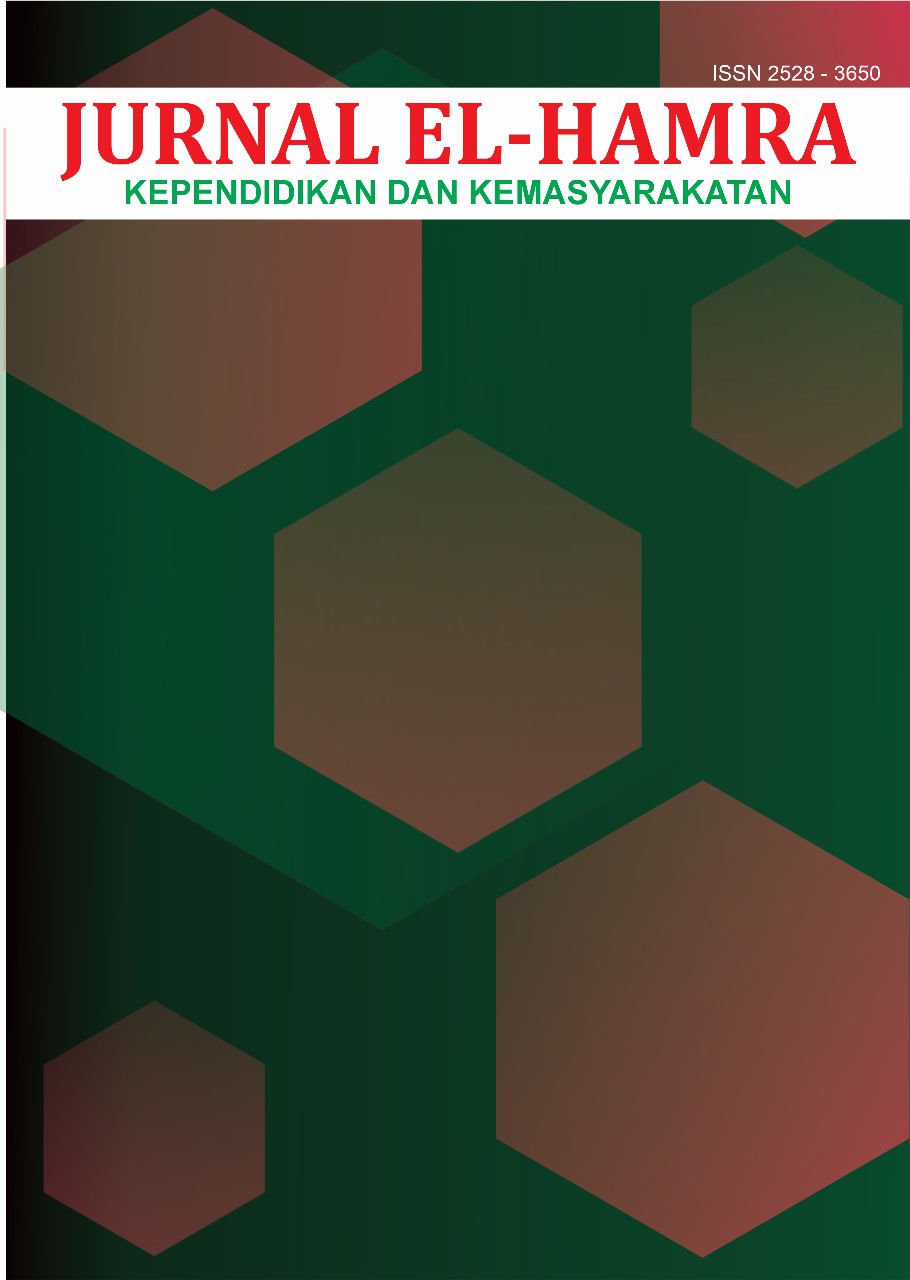Pemikiran Feminisme Amina Wadud
Keywords:
Pemikiran, Feminisme, Amina WadudAbstract
Pemikiran Amina Wadud sebagai tokoh feminisme yang berpendapat mulai dari penciptaan manusia
sampai persaksian perempuan adalah untuk menentang sebagian sikap dan hasil penafsiran tentang
wanita dan Alquran. Penafsiran yang mengabaikan prinsip keadilan, persamaan dan kemanusiaan yang
lazim. Amina Wadud menganggap kesetaraan laki-laki dan wanita bukan berarti sama. Ia mengakui
adanya perbedaan penting antara laki-laki dan wanita. Maksud kesetaraan menurutnya adalah bahwa
laki-laki dan perempuan mempunyai hak dan kewajiban yang sama pada tataran etika agama, dan
mempunyai tanggung jawab yang sama-sama signifikan pada tataran fungsi sosial.
Kata kunci: Pemikiran, Feminisme, Amina Wadud
References
Baidowi, Ahmad. 2005. Tafsir Feminis: Kajian Perempuan dalam Alquran dan Para Mufassir Kontemporer. Bandung: Nuansa.
Departemen Agama RI. 2005. Alquran dan Terjemahnya. Bandung: CV. Diponegoro.
Hanifah. 2005. Paradigma Tafsir Feminis (Studi Atas Pemikiran Amina Wadud, Asghar Ali Engineer dan Muhammad Syahrur).
Hasan, Ali. 1994. Sejarah dan Metodologi Tafsir. Jakarta: Raja Grafindo.
Ika Khusnul Khotimah. 21-12-2010. Biografi Amina Wadud. http://pasaronlineforall.blogspot.com/2010 /12/biografi-amina-wadud.html. Junaidi, Abdul Basith. 2009. Islam dalam berbagai Pembacaan Kontempore. Yogyakarta: Pustaka Pelajar.
Khalaf Allah, Muhammad Ahmad. 1965. Al-Fann Al-Qassasi fi Alquran Al-Karim. Kairo: Maktab Al-Anjali Masriyyah
Muhsin, Amina Wadud. 1999. Qur’an and Woman: Rereading the Sacred Text with a Woman Perspective. New York: Oxford University Press. Wadud, Amina. 2001. Qur’an Menurut Perempuan: Meluruskan Bias Gender dalam Tradisi Tafsir. Terjemahan Abdullah Ali Jakarta: PT. Serambi Ilmu Semesta.
Wijaya, Aksin. 2011. Menggugat Otentisitas Wahyu Tuhan; Kritik Atas Nalar Tafsir Gender. Yogyakarta: Magnum Press. http://en.wikipedia.org/wiki/Amina_Wadu d. http://tafsirhadis-uin suka.blogspot.com/2009/02/paradigmatafsir-feminis.html www.musawah.org/docs/pubs/wanted/Wanted -A-W-EN.pdf Islambeyo Patriarchy through Gender Inclusive Qur’anic Analysis.
Downloads
Published
Issue
Section
License

This work is licensed under a Creative Commons Attribution 4.0 International License.
Penulis yang karyanya diterbitkan dalam Jurnal El-Hamra : Kependidikan dan Kemasyarakatan wajib menyetujui persyaratan berikut:
1. Hak Cipta dan Lisensi:
- Penulis tetap memegang hak cipta atas karyanya.
- Penulis memberikan hak publikasi pertama kepada jurnal.
- Karya yang diterbitkan dilisensikan di bawah a Creative Commons Attribution 4.0 International License (CC BY 4.0). Lisensi ini mengizinkan pihak lain untuk berbagi karya dengan mengakui kepenulisan dan publikasi awal dalam jurnal ini.
2. Distribusi Non-Eksklusif:
- Penulis diizinkan untuk membuat perjanjian kontrak tambahan yang terpisah untuk distribusi non-eksklusif dari versi jurnal yang diterbitkan.
- Contoh distribusi non-eksklusif:
- Menyimpan karya di repositori institusional.
- Menerbitkan karya dalam buku.
- Dalam setiap bentuk distribusi non-eksklusif, pengakuan atas publikasi awal dalam jurnal ini wajib dicantumkan.
3. Publikasi Online:
- Penulis diizinkan dan didorong untuk memposting karya mereka secara online sebelum dan selama proses penyerahan.
- Contoh platform publikasi online:
- Repositori institusional.
- Situs web pribadi.
- Publikasi online karya sebelum dan selama proses penyerahan diharapkan dapat:
- Meningkatkan pertukaran informasi yang produktif.
- Meningkatkan kutipan dan jangkauan karya yang diterbitkan.







